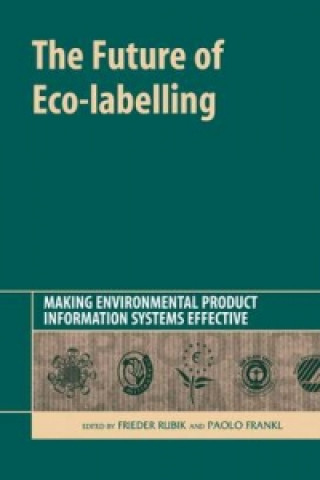
Kód: 05017804
Future of Eco-labelling
Autor Frieder Rubik, Paolo Frankl
Eco-labelling is one of the key tools used by policy-makers in many parts of the world to encourage more sustainable production and consumption. By providing environmental information on products and services, eco-labels address b ... celý popis
- Jazyk:
 Angličtina
Angličtina - Väzba: Pevná
- Počet strán: 357
Nakladateľ: Taylor & Francis Ltd, 2005
- Viac informácií o knihe

Mohlo by sa vám tiež páčiť
Darujte túto knihu ešte dnes
- Objednajte knihu a vyberte Zaslať ako darček.
- Obratom obdržíte darovací poukaz na knihu, ktorý môžete ihneď odovzdať obdarovanému.
- Knihu zašleme na adresu obdarovaného, o nič sa nestaráte.
Viac informácií o knihe Future of Eco-labelling
Nákupom získate 256 bodov
 Anotácia knihy
Anotácia knihy
Eco-labelling is one of the key tools used by policy-makers in many parts of the world to encourage more sustainable production and consumption. By providing environmental information on products and services, eco-labels address both business users and consumers and range from mandatory approaches, such as required product declarations, to voluntary approaches, such as national eco-labels. Eco-labels can play an important role in environmental policy. They reward and promote environmentally superior goods and services and offer information on quality and performance with respect to issues such as health and energy consumption. Eco-labels fit well into a multi-stakeholder policy framework - as promulgated recently by the EU's integrated product policy (IPP) - since the development of criteria for labels and the acceptance in the market requires the involvement of a wide range of different parties, from government and business, to consumers and environmental organisations. However, many eco-labelling schemes have had troubled histories, and questions have been raised about their effectiveness. So, are eco-labels an effective tool to foster the development, production, sale and use of products and to provide consumers with good information about the environmental impacts of those products? Is eco-labelling useful to business as a marketing tool? What factors contribute to the development of successful schemes? More than ten years after its establishment, can the EU Flower be considered a success? Are national eco-labels such as the German Blue Angel and the Norwegian White Swan more effective? Should eco-labels be harmonised? Are eco-labels achieving their original aim of fostering sustainable production and consumption? For which product groups are ISO type I eco-labels appropriate and inappropriate? Are other labels, such as mandatory, ISO type II and ISO type III labels more effective in some cases? Are eco-labels focusing on the main environmental policy targets or just on "low-hanging fruit"? Are eco-labels really linked to other tools of IPP? The Future of Eco-labelling provides answers to all of these questions. Based on a major EU research exercise, the book plots a course for policy-makers to address some of the historic problems with eco-labelling, to learn what works and what doesn't and to move forward with schemes that can make a real difference to sustainable production and consumption. The book analyses the conditions under which eco-labelling schemes-both mandatory and voluntary-are or can become an efficient and effective tool to achieve given objectives; assesses previous experiences with eco-labels in different European countries and the relationship of these schemes with business strategies, IPP and market conditions; defines strategies aimed at linking eco-labels with other IPP measures; explores how eco-labels can be used to encourage sustainable consumption patterns, create green markets, foster innovation and development of green products and services, and implement multi-stakeholder initiatives; and sets out detailed recommendations for the future of eco-labelling. The book will be required reading for policy-makers, businesses involved with eco-labelling schemes and researchers interested in the development of sustainable production and consumption and IPP worldwide.
 Parametre knihy
Parametre knihy
Zaradenie knihy Knihy po anglicky Society & social sciences Society & culture: general Social issues & processes
103.34 €
- Celý názov: Future of Eco-labelling
- Autor: Frieder Rubik, Paolo Frankl
- Jazyk:
 Angličtina
Angličtina - Väzba: Pevná
- Počet strán: 357
- EAN: 9781874719878
- ISBN: 187471987X
- ID: 05017804
- Nakladateľ: Taylor & Francis Ltd
- Hmotnosť: 738 g
- Rozmery: 163 × 242 × 26 mm
- Dátum vydania: 01. May 2005
Obľúbené z iného súdka
-

Men Explain Things to Me
10.63 € -21 % -

Pleasure Activism
17.18 € -19 % -

Superforecasting
10.94 € -24 % -

Violence
13.09 € -9 % -
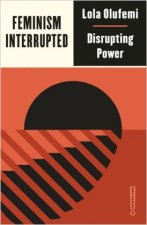
Feminism, Interrupted
13.60 € -

Your Silence Will Not Protect You
15.44 € -23 % -

Invisible Women of Prehistory
30.79 € -1 % -

Thinking Big
34.99 € -

Asperger's Syndrome
21.89 € -

Innovations in Deaf Studies: The Role of Deaf Scholars
153.68 € -

The Next 100 Years
14.42 € -23 % -

The Second Sex
7.25 € -24 % -

The Lucifer Effect
15.85 € -22 % -

Regarding the Pain of Others
12.27 € -23 % -

Singularity Is Near
22.91 € -16 % -

Sorry I'm Late, I Didn't Want to Come
12.27 € -23 % -

The Beauty Myth
6.13 € -24 % -

Scum Manifesto
8.79 € -15 % -

Perfect Daughters
14.52 € -21 % -
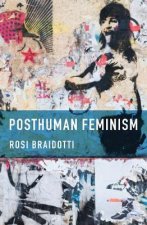
Posthuman Feminism
21.17 € -

Food Of The Gods
16.57 € -23 % -

Alcoholics Anonymous Big Book
25.06 € -

Drama Of Being A Child
11.14 € -23 % -
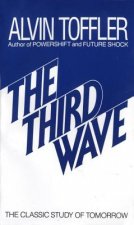
Third Wave
8.59 € -22 % -

Presence
15.03 € -22 % -

Shock Doctrine
14.93 € -23 % -

Vagina
10.84 € -17 % -
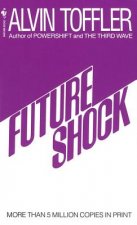
Future Shock
8.99 € -18 % -

Social Animal
12.78 € -24 % -

When Violence Is the Answer
17.59 € -17 % -

Xenofeminist Manifesto
10.02 € -14 % -

Open and Closed Mind
22.91 € -

Awakened Woman
14.62 € -20 % -

Child Called It
10.22 € -24 % -

Addiction by Design
31.40 € -11 % -

You Left Early
13.50 € -15 % -
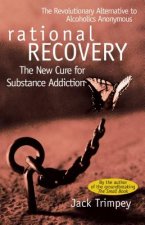
Rational Recovery
15.75 € -23 % -

Second Sex
26.39 € -3 % -

Who Owns The Future?
12.06 € -19 % -

Development as Freedom
15.85 € -22 % -

Sociological Imagination
16.57 € -23 % -
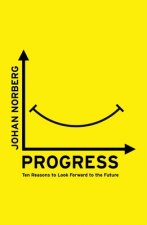
Progress
12.27 € -23 % -

Feminism is for Everybody
20.86 € -14 % -

Blitzed
10.94 € -24 % -

Another Forgotten Child
10.12 € -22 % -

Girl Alone
11.14 € -23 % -

Stonewall Riots: Coming Out in the Streets
13.60 € -19 % -

Global Catastrophes and Trends
24.75 € -6 % -

Prey
31.20 €
Osobný odber Bratislava a 2642 dalších
Copyright ©2008-24 najlacnejsie-knihy.sk Všetky práva vyhradenéSúkromieCookies




 21 miliónov titulov
21 miliónov titulov Vrátenie do mesiaca
Vrátenie do mesiaca 02/210 210 99 (8-15.30h)
02/210 210 99 (8-15.30h)